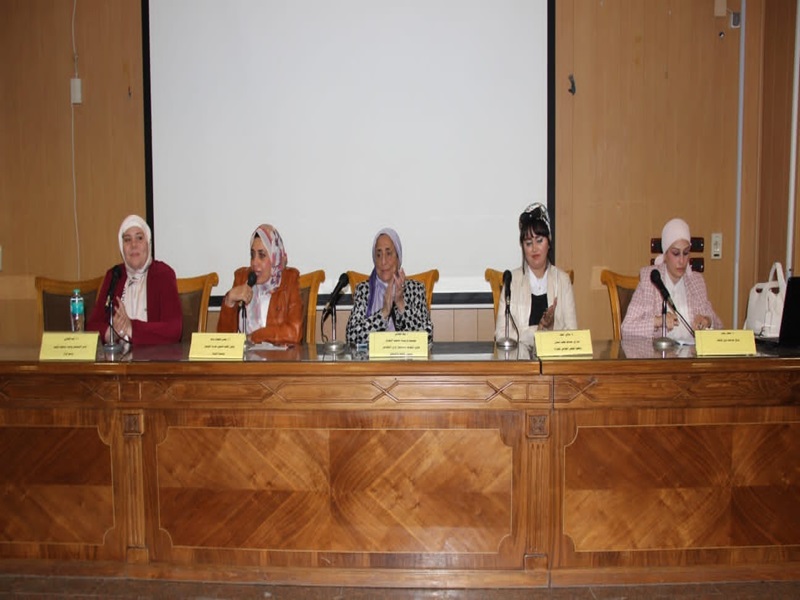The Faculty of Alsun celebrates the International Day of Persons with Special Needs in cooperation with the Women's Support and Anti-Violence Unit
The Women Support and Anti-Violence Unit at the university, in cooperation with the Community Service and Environmental Development Affairs Sector at the Faculty of Alsun, at Ain Shams University, organized an awareness symposium for students with disabilities as part of the celebrations of the International Day of Persons with Special Needs, under the auspices of Prof. Mohamed Diaa Zain El-Abedeen, President of the University, Prof. Ghada Farouk, Vice President of the University for Community Service and Environmental Development Affairs, Prof. Salwa Rashad, Dean of the Faculty, and under the supervision of Prof. Yomna Safwat, Vice Dean of the Faculty for Community Service and Environmental Development Affairs, and Prof. Hind El-Hilali, Director of the Women Support and Anti-Violence Unit at the University.
During her opening speech, Prof. Yomna Safwat, Vice Dean of the Faculty for Community Service and Environmental Development Affairs, stressed that Egypt is one of the most important countries that is praised in social work in general, especially in the field of caring for and rehabilitating people with disabilities, and the state pays great attention to people with disabilities, due to the conviction and complete belief in people with Special Needs, with their abilities and capabilities.
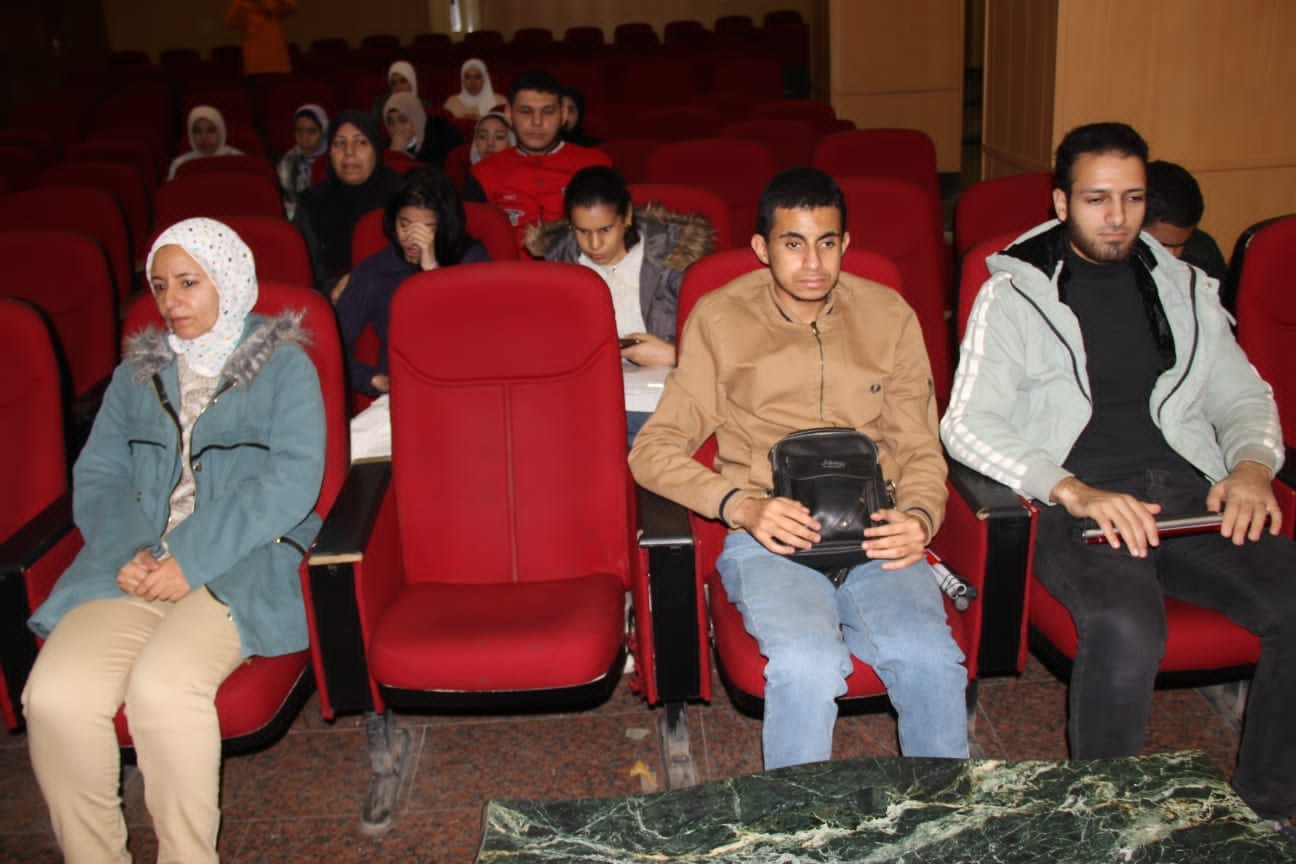 |
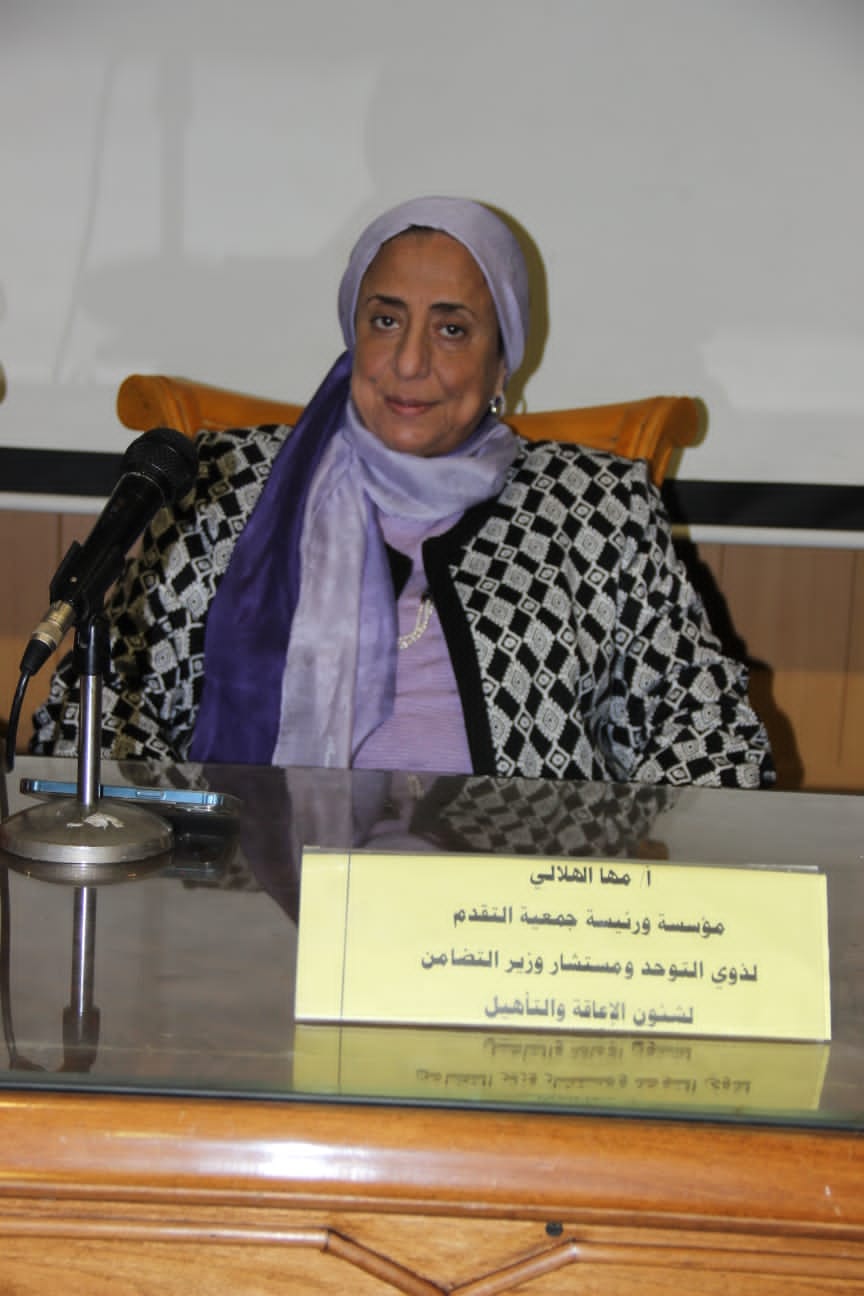 |
 |
||
Prof. Yomna Safwat also confirmed that the faculty pays special attention to the file of people with special needs, as it provides them with care and follow-up through the Rafiq Al-Darb Library. This care includes their participation in various youth welfare office activities, which has enabled them to obtain multiple awards at the university level.
In addition, the faculty provides field training opportunities for people with special needs in cooperation with community parties, which contributes to developing their skills and increasing their opportunities in the labor market.
While Prof. Hind Al-Hilali, Director of the Women's Support and Anti-Violence Unit, pointed out that Ain Shams University administration is keen to care for its children from all walks of life and provide them with a safe educational environment, especially female students, women and children with disabilities, and provide them with all aspects of care, noting that the Students Disability Service Center located behind Zaffran Palace serves the internal and external community and is interested in spreading the culture of integration to guarantee the rights of students with special needs, such as access to any place within the university, and provides them with all educational courses, and the right to participate in various student activities.
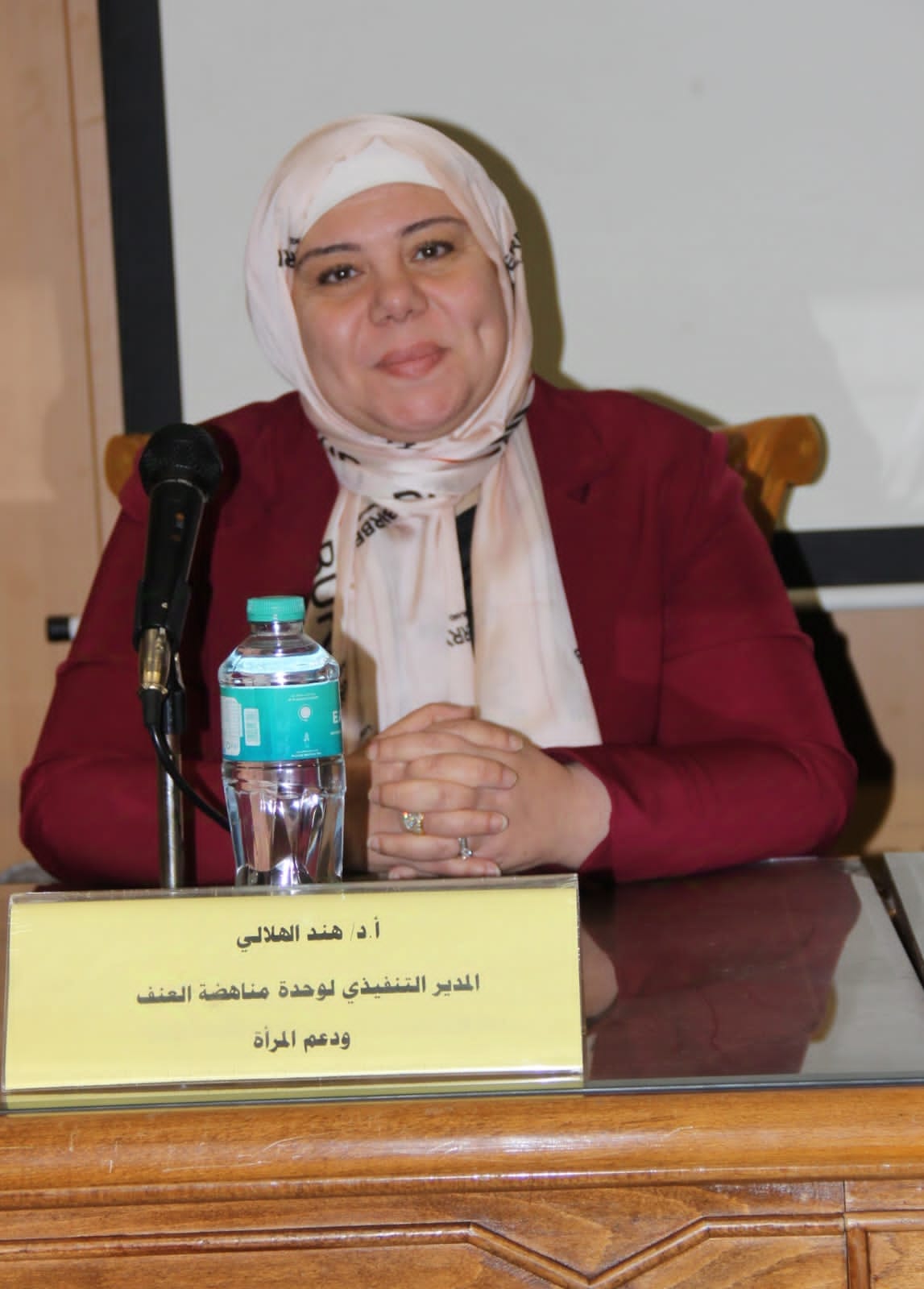 |
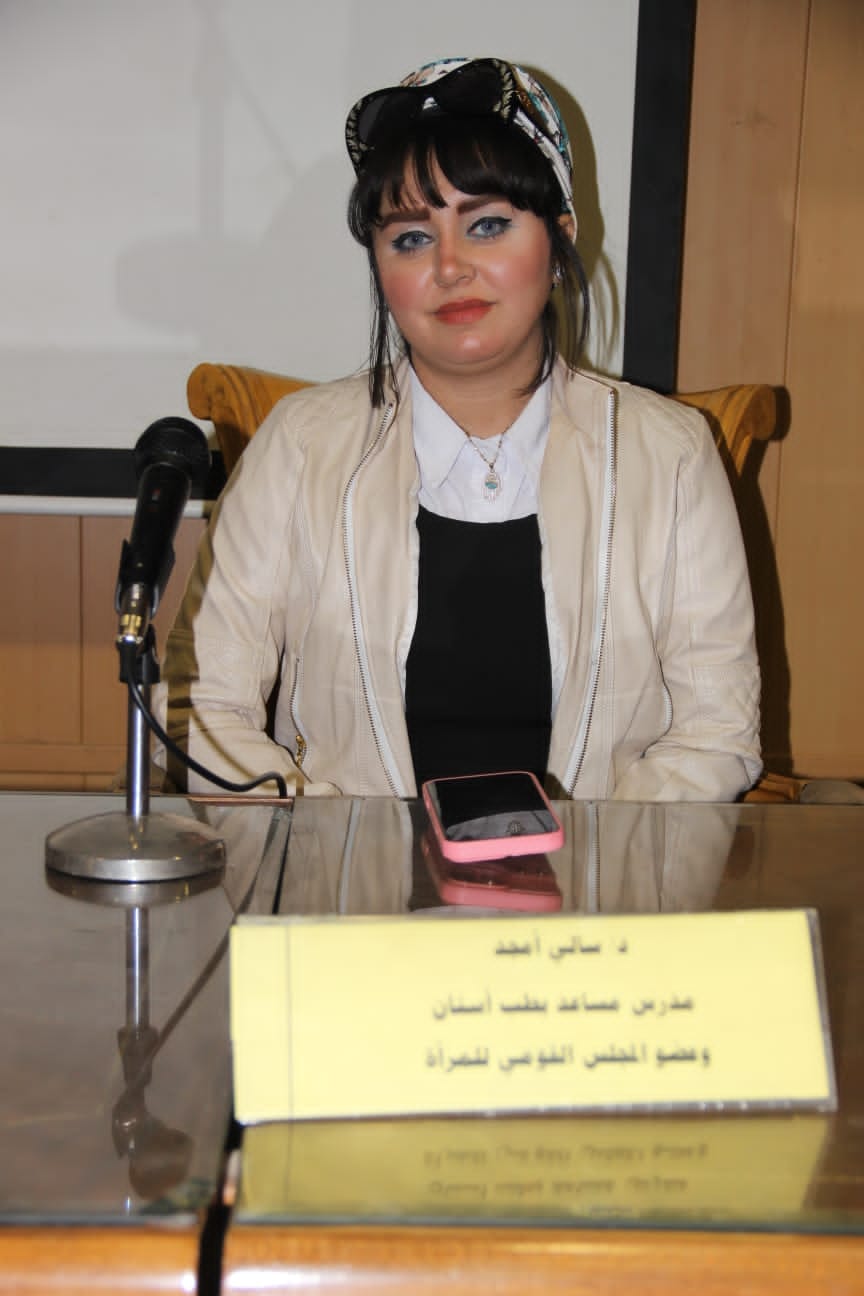 |
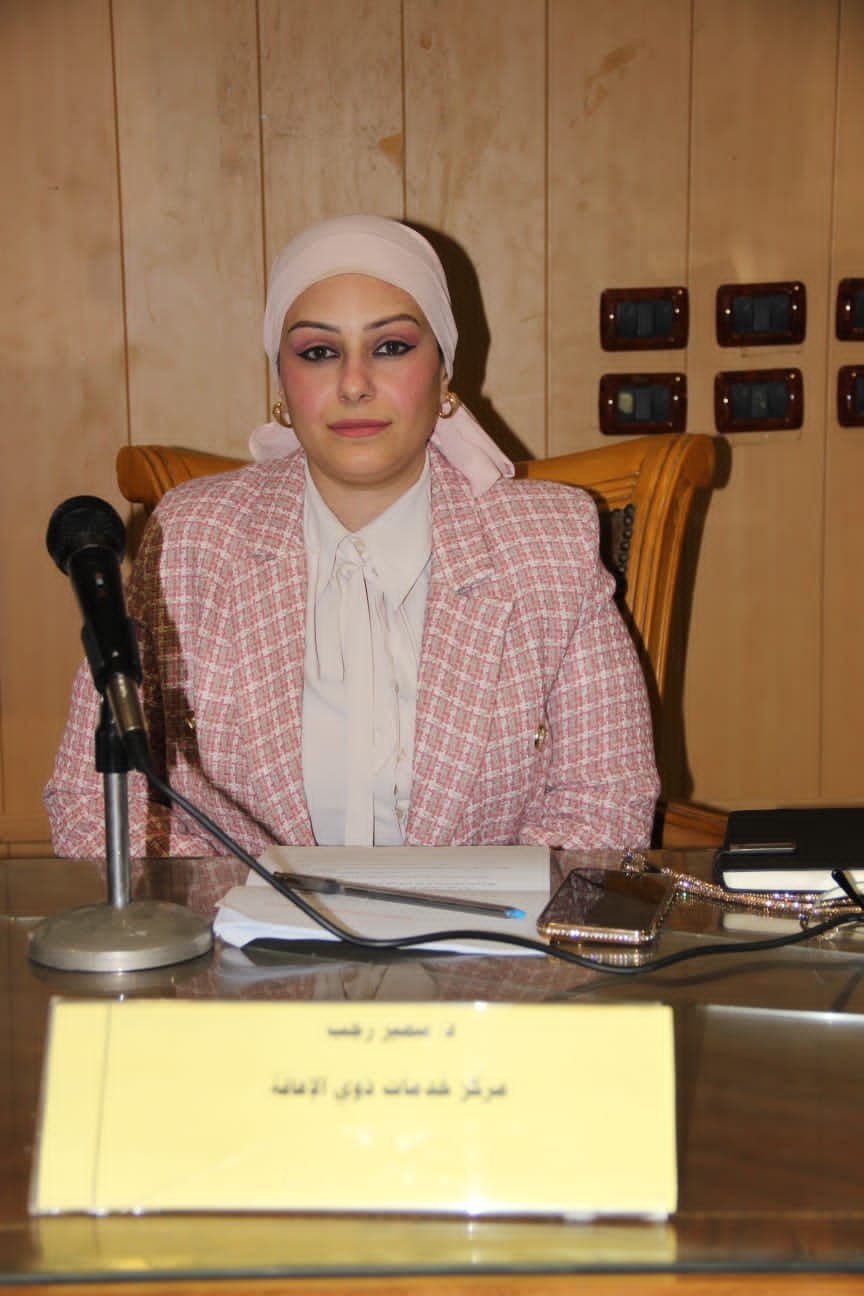 |
||
Her Excellency explained the role played by the Women's Support and Anti-Violence Unit to support students with special needs at the university through volunteer students, specialists, consultants and faculty staff, in addition to developing the capabilities of self-defense and managing the stress and negative feelings resulting from exposure to bullying and violence. The services provided to them were referred to, including providing rights and protection, in addition to the Students Disability Service Center at the university, which provides many services to students in holding seminars and training courses with the possibility of facilitating the procedures for obtaining the integrated services card for students and directing students to book appointments for medical examinations scheduled by the Ministry of Health in government hospitals.
While Ms. Maha Hilali, founder and president of the Progress Association for People with Autism and advisor to the Minister of Social Solidarity for Disability and Rehabilitation Affairs, explained that disability means that an individual suffers from a health condition that restricts all his participation and activities, and thus causes him many obstacles, which makes him unable to perform the basic tasks that a healthy person performs, and thus reduces the ability of the disabled person to obtain his requirements, especially the work that suits him and is compatible with his abilities, and she reviewed the types of disabilities and their classification.
She explained the state's efforts in supporting people with disabilities, and the steps to obtain the integrated services card, and advised students to follow the electronic rehabilitation platform of the Ministry of Solidarity to take all courses and training to qualify them for the labor market.
As Ms. Iman Zaki Al-Zuhairi, former head of the Presidential Division, Defense, Security and Justice at the Ministry of Finance, indicated that the integrated services card is the only approved means of proving disability, its type and degree, to help obtain various services, and the facilities and benefits stipulated for its owner, in accordance with the applicable legislation of support and health insurance, a percentage in work and others, the Support People with Special Needs Fund.
The Integrated Services Card was issued as the government adopts an ambitious program, in which it pays great attention to people of determination, to improve their health and living conditions. At the top of its priorities at the present time is completing the issuance of the Integrated Services Card, which will gradually solve the problems that were a burden on people with disabilities, and is considered a key for them to obtain their rights in the law; from health insurance, pension and providing job opportunities.
Dr. Sally Amgad, a dentistry lecturer and a member of the National Council for Women, also stressed the importance of educating women with disabilities until the university level, with the aim of promoting gender equality as well as integrating them into society, building their personality at university and preparing a woman capable of engaging in society.
She pointed out the efforts made by universities in implementation of Law No. 10 of 2018, allocating a percentage of seats in public universities for people with disabilities and developing their infrastructure to serve people with disabilities.
Dr. Samar Ragab, a member of the Students Disability Service Center at the university, stressed that the role of the center at the university is not based on facilitating exams or making any exceptions for students with disabilities, but rather depends on establishing the principle of equal opportunities for all students, providing guidance to new students about the faculties suitable for their disabilities, and then following up on the student with disabilities during the years of receiving education within the walls of the university, supporting him and providing all the facilities required by his disability to receive university sciences in a manner appropriate to the student’s abilities, as well as providing training courses in using computers and using Braille for reading, and all courses or training that help students with special needs to engage in the university community and receive information in a way that allows for the provision of the principle of equal opportunities, which is known as the Accessibility Law.
Finally, the discussion was opened with students and parents to answer their questions and guide them to the correct ways guaranteed by law to obtain their rights.


.svg)

